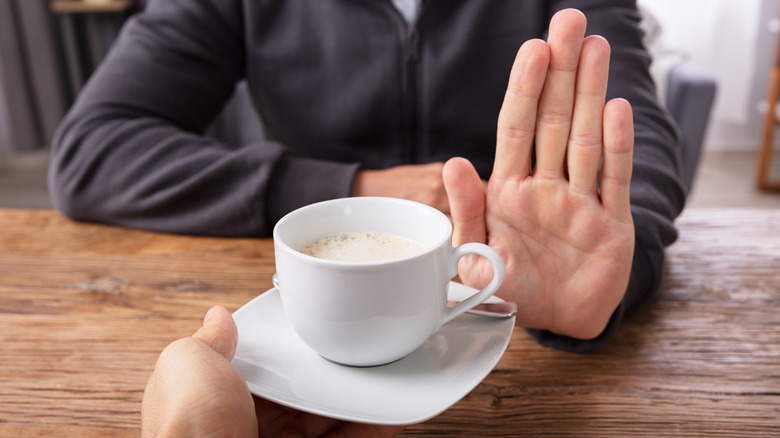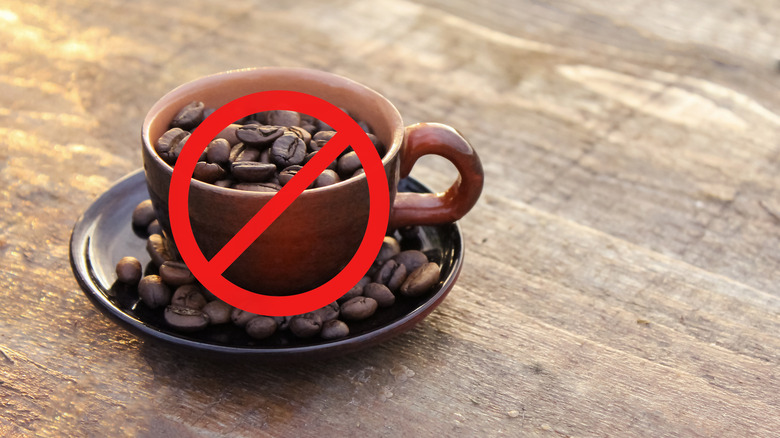You Should Stop Drinking Coffee If This Happens To You
Coffee can have health benefits, but too much caffeine — like too much of anything, even if it's good — is bad. The Mayo Clinic recommends adults limit their caffeine intake to 400 milligrams a day, about three to five cups of coffee. Different coffees have different levels of caffeine, and don't forget about other foods and drinks with caffeine, like sodas, teas, and chocolate.
Signs you should stop drinking coffee include poor sleep or insomnia, or if you have an anxiety disorder, unexpected weight gain, missed periods, acid reflux, or high blood pressure, according to Eat This Not That. Drinking coffee six hours or less before bedtime can significantly disrupt your sleep (via a 2013 study). People with anxiety disorders tend to be more sensitive to caffeine, which can cause increase headaches, insomnia, and heart palpitations (via a 2015 study). Eat This Not That says that a cup of coffee can make you feel full, but once that feeling wears off, you can feel famished, causing you to binge eat. If you drink coffee in place of a meal, you can experience missed periods. If you experience acid reflux or have gastroesophageal reflux disease (GERD), coffee and other caffeinated drinks can make it worse (via a 2020 study). Finally, coffee can increase your blood pressure, so you should eliminate it if you already have high blood pressure.
You should quit coffee if you have any of these health problems. Here's how.
How to quit coffee
According to Healthline, you'll start feeling caffeine withdrawal symptoms 12 to 24 hours after quitting — headaches, fatigue, anxiety, trouble concentrating, feeling depressed, tremors, feeling irritable, and having low energy. Fortunately, these symptoms are temporary, lasting two to nine days, peaking at about 24 to 51 hours after quitting.
The Cleveland Clinic recommends tapering off instead of quitting cold turkey. If you quit coffee altogether, you'll be more likely to go back to it to get rid of the awful withdrawals. Gradually reduce your coffee intake and replace it with water to stay hydrated. It can take two to three weeks to quit coffee. Healthline recommends swapping your regular fully caffeinated coffee with half-full caf and half decaf or swapping out a cup of coffee for an herbal tea. Continue to add more caffeine-free drinks for two to three weeks until you're completely off of coffee. Taper it off slowly. For example, if you usually drink three cups of coffee a day, start by swapping out one cup for decaf or herbal tea, or have two and a half cups of coffee instead of three. In a few days, go down to two cups of coffee. Do it gradually and take your time.
Add natural energy boosters to your morning — exercise, go outside, eat a well-balanced breakfast, drink plenty of water, drink caffeine-free tea, put on some music, do morning yoga, try morning meditations, and keep a good sleep schedule (via One Medical).


